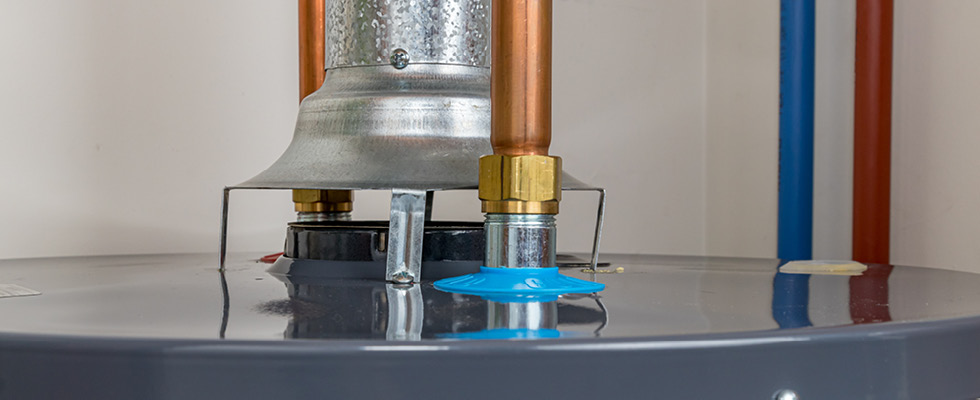
On March 30, a federal court in Indiana ruled there was sufficient evidence to allow a jury to consider carbon monoxide wrongful death claims arising from an improperly installed propane water heater. It denied the water heater manufacturer’s summary judgment motions relating to the adequacy of its consumer warnings and to the misuse of the water heater. The case is Litton v. Navien Inc.
Shower Trailer
In 2015, the United States Department of Defense entered into contracts to upgrade the shower trailer facility at the North Vernon Airport-COP Panther Army detachment base in Jennings County, Indiana. As part of this upgrade the department purchased new gas water heaters.
The water heaters were manufactured by Navien Inc. In August 2015, Navien sold the water heaters to J.R. Balson Inc., which in turn sold them to the Department of Defense on Sept. 17 of that year.
The water heaters were designed to run on natural gas. Although the base used only propane fuel, the Navien water heaters came with a propane conversion kit.
The Proper Orifice
There is, of course, a danger in using propane to fuel an appliance designed for natural gas. The gas orifice on a natural gas water heater is significantly larger than that of a water heater designed for propane. This is primarily because of the higher Btu content and delivery pressure of propane. If a large natural gas orifice is used on a water heater that is fueled by propane, the result is that too much propane and not enough air will be delivered to the burner. This causes incomplete combustion and the production of potentially dangerous levels of carbon monoxide.
The propane conversion kit supplied with the Navien water heaters included a smaller inlet orifice properly sized to safely use propane instead of natural gas. The water heaters included safety warnings and instructions on a ratings plate that was attached to each water heater, as well as in an installation manual provided with each water heater.
Instructions Didn’t Apply?
Unfortunately, no conversion was done on the water heaters that were installed in the shower trailer at the North Vernon base. The maintenance person at the base was responsible for the installation of the water heaters. He held no plumbing license. He said that he read the installation manual before installing the water heaters.
However, he did not perform the propane conversion that was outlined in the manual. Despite knowing that the water heaters would be fueled by propane, he said he simply believed these instructions “wouldn’t apply to him.”
In 2019, Sergeant Larry Litton served with the Indiana National Guard. In December 2019, he was stationed at the North Vernon base. On Dec. 19, he was found dead inside the shower trailer. A medical examination revealed that he died of carbon monoxide poisoning.
Improper Installation
The Indiana National Guard retained a licensed engineer to investigate the cause of Sergeant Litton’s death. He determined the water heaters in the shower trailer were the source of the carbon monoxide that caused the death, and that improper installation of the water heaters resulted in the production of dangerous levels of carbon monoxide in the shower trailer.
Sergeant Litton’s wife and mother filed a wrongful death suit against Navien. It is unclear from the court opinion why they did not sue the installer of the water heaters.
The Littons claimed the warnings that accompanied the water heater were inadequate to alert users and installers to the risk of failure to install the smaller inlet orifice when installing the appliance for propane use. They also claimed that Navien water heaters were defective because Navien offered only convertible versions.
Summary Judgment Motion
Navien denied the claims and asserted a product misuse defense, citing the multiple ways in which the installation deviated from the requirements of the installation manual. Both sides hired experts who supported their positions.
Navien filed a motion for summary judgment on the plaintiffs’ claims and on its misuse defense. The court made short work of the opinion of the plaintiffs’ expert, Miller, on the claim that offering only convertible appliances rendered those appliances defective:
“Dr. Miller’s report provides no reasoning behind his seemingly illogical statement that Navien increases the likelihood of users omitting the conversion process by manufacturing and selling only convertible water heaters. The only basis given in the report is that Navien is the only manufacturer of water heaters similar to those at issue in this case that does not offer a single-fuel, nonconvertible water heater. However, it remains unclear how offering products of another type as well could clarify how to use a product to a consumer. The statement is presented without any valid scientific backing and amounts only to inadmissible speculation.”
Adequate Warnings? The adequacy of Navien’s warnings presented a closer question. Plaintiffs argued there was a legitimate factual dispute between experts on both sides, so the issue was for the jury to decide. Navien responded that the plaintiffs’ expert admitted that Navien’s safety instructions were “really done quite well,” so there was no issue to decide. The court, however, disagreed with Navien:
“The court concludes that there remains a genuine dispute of material fact over whether the warnings and instructions regarding gas conversion provided by Navien were adequate to inform the behavior of the product’s users including Mr. Ramey [the installer].
“A review of the installation manual demonstrates to the court that a reasonable juror could find that the failure to mention the particular dangers of using propane in the water heaters without conversion until page 12 of the manual — with the exception of a nondescript drawing of the conversion kit on page five and a general statement that the installation must be done up to code on the cover page — was not sufficient to reasonably warn users of the relevant dangers.
“There remains a question for the jury over whether the placement and emphasis put on the warnings was sufficient to alert reasonable users to the danger of failing to convert the water heaters to propane gas.”
The court added that the installer’s testimony that the conversion instructions “didn’t apply to him” could be taken two ways by a jury. It could mean the installer failed to follow a clear and obvious safety instruction. Or it could mean the instructions were not clear enough to alert the installer that they must be followed for a propane installation. It was, said the court, for the jury to decide.
Expert’s Admission
Finally, the court concluded that Navien put too much stock in the admission of the plaintiffs’ expert that the Navien warnings were “really done quite well.” A jury could find that the expert was simply referring to the technical content of the warnings, rather than the method of their presentation.
As to the product misuse defense, if the misuse was clear as a matter of law, the case would be dismissed. Navien contended there was no issue for the jury and the case should be dismissed.
It “could not have reasonably foreseen,” said Navien, “that someone would read its manual and fail to follow the warnings and directions.” The court disagreed. It was, the court said, for the jury to decide whether the misuse in this case was foreseeable by Navien.
In summary, the court threw out the plaintiffs’ product defect claim but allowed the jury to consider at trial the claim that the Navien warnings were inadequate, as well as the defense that the installer misused the product by flagrant disregard for the safety instructions.
However, the case never went to trial. Less than two weeks after the court’s decision, the parties reached a confidential settlement.


